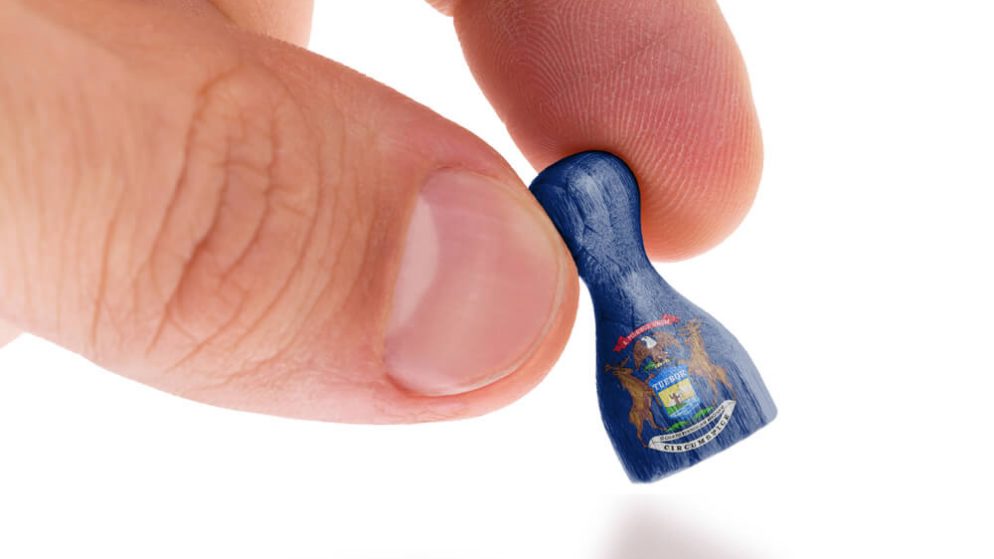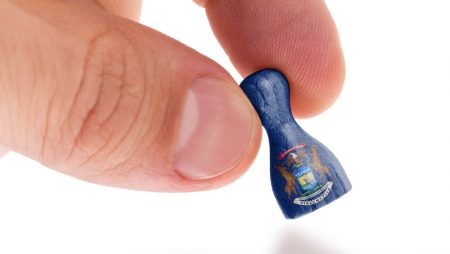

eCOGRA has received approval to start operating in the Michigan gambling market. eCOGRA received permission from the Michigan Gaming Control Board to act as an independent testing lab for sports betting and iGaming operators in the state. eCOGRA is an abbreviation for eCommerce Online Gaming Regulation and Assurance.
As an authorized independent testing lab, eCOGRA will use its resources and staff to certify all iGaming and sports betting operators in Michigan to improve high standards within the market. The MGCB will work closely with eCOGRA to ensure that the gaming operators in the state conduct fair gaming as per its mandate.
eCOGRA has made a name for itself in the gambling industry by testing, inspecting, and certifying online gambling software and systems. The independent regulatory body ensures that operators maintain safe and fair standards for gamblers while ensuring responsible conduct among the operators.
All the biggest casino operators, software providers, as well as gambling affiliates, display the eCOGRA Affiliate Trust Seal as a sign of safety. Casinos that display this seal are among the most reputable and transparent in the market, which gives online punters peace of mind that their accounts and funds are protected. Some of eCOGRA’s top operators and software providers include Bet365, BetMGM, 32Red, DraftKings, 888, Betway, Ladbroke, and more.
Just before the year ended, the Pennsylvania Gaming Control Board also authorized eCOGRA to start operating in the state. The PGCM acknowledged eCOGRA’s testing and certification tool, which has been providing online gambling operators and suppliers in Pennsylvania with regulatory certifications.
The recognition given by the various gaming control boards and commissions is exactly what London-based eCOGRA needs to establish its footing in the US gambling market. Before this, eCOGRA also received approval from regulators in Colorado, as well as New Jersey. As such, we can expect to see eCOGRA continue expanding its offerings to other jurisdictions with legal gambling.
In Colorado and New Jersey, eCOGRA has only been authorized to offer limited services. In particular, eCOGRA has been offering iGaming operators 3rd party cybersecurity testing and certification. In Pennsylvania and Michigan, however, eCOGRA is a fully licensed vendor with independent testing lab rights for operator certifications.
Apart from enjoying a vibrant presence in US gaming, eCOGRA is also well-established in global gaming markets. For instance, in Latin America, its independent testing lab is utilized by some of the leading operators. The Buenos Aires Province Institute of Lottery and Casinos, for example, approved the brand in 2019 allowing eCOGRA to test and certify all the online platforms and casino games in the market.
As time has progressed, eCOGRA has continued to take advantage of strategic partnerships, particularly as more gambling markets around the world keep maturing. eCOGRA’s most recent authorization to start offering certification services to casino operators in Michigan now means that the brand is available in a total of 34 jurisdictions strewn across 4 continents.
What we cover
Perfect timing as the Michigan market continues to flourish
In 2022, iGaming and online sports betting operators recorded some of their best months, which means that eCOGRA couldn’t have picked a better time to join this thriving market. According to MGCB, table games, slots, as well as poker generated a combined $1.58 billion last year. This amount also includes iGaming revenues from tribal and commercial online casinos.
Online sportsbooks in the state produced a Gross Gaming Revenue worth almost $400 million. This effectively brought the total tally for the year to $1.98 billion. In Michigan, 12 Native American communities boast Class III gaming compacts that permit them to open and operate online gaming and sports betting platforms.
In addition, the state also allows 3 commercial casinos in Detroit to accept online bets. These 3 casinos include MotorCity Casino, Hollywood Casino at Greektown, as well as MGM Grand Detroit. Since iGaming went live in the state in early 2021, the gaming industry has gone from strength to strength.
The 3 commercial casinos have partnerships with established sportsbook platforms that have facilitated speedy growth. MGM Grand’s partner is BetMGM while Motorcity is allied with FanDuel. Hollywood Greektown, on the other hand, is closely affiliated to Barstool sports.
The Native American tribes are also tied to equally established sportsbook partners. For instance, the Bay Mills Indian Community has DraftKings, Little Traverse Bay Bands has BetRivers, Keweenaw Bay Indians has Golden Nugget and Sault Ste. Marie Tribe of Chippewa Indians is linked to WynnBet.
Although all these operators mentioned above have done a great job of helping the market to mature, it was BetMGM and its partner MGM Grand Detroit that has been at the top of the revenue table consistently. According to the MGCB, BetMGM recorded a gross gaming revenue of $589 million from online casinos last year, which marks a market share of 37%.
As far as sports betting is concerned, Motorcity and partner FanDuel topped the sports betting revenue table. FanDuel customers placed more than $1.37 billion in wagers, which resulted in profits worth $163 million. Most of the gross gaming revenue produced was acquired from free play, which refers to promotional cash that online books provide new customers as incentives.
Tax benefits have also continued to increase as the market has matured. The state received an excess of $289.2 million in iGaming taxes in 2022. Detroit, which receives a small portion of iGaming carried out by the city’s online partners, generated roughly $77 million. Funds generated from iGaming in the state are also utilized to fund the state school aid fund.
Final Thoughts
This year, iGaming providers in Michigan are expected to put their best foot forward, especially if they want to remain competitive in the crowded North American gambling market. Casinos in Detroit as well as their online casino platforms have been bracing themselves for increased competition from neighboring Ontario after the Canadian province legalized sports betting and iGaming in 2022.
Canada and Detroit share a border. Until last year April, Canadians would cross over to Michigan to place sports bets legally. Now that anyone aged 19 and older is allowed to place wagers on their phones, casinos in Michigan must work harder to stay viable.






